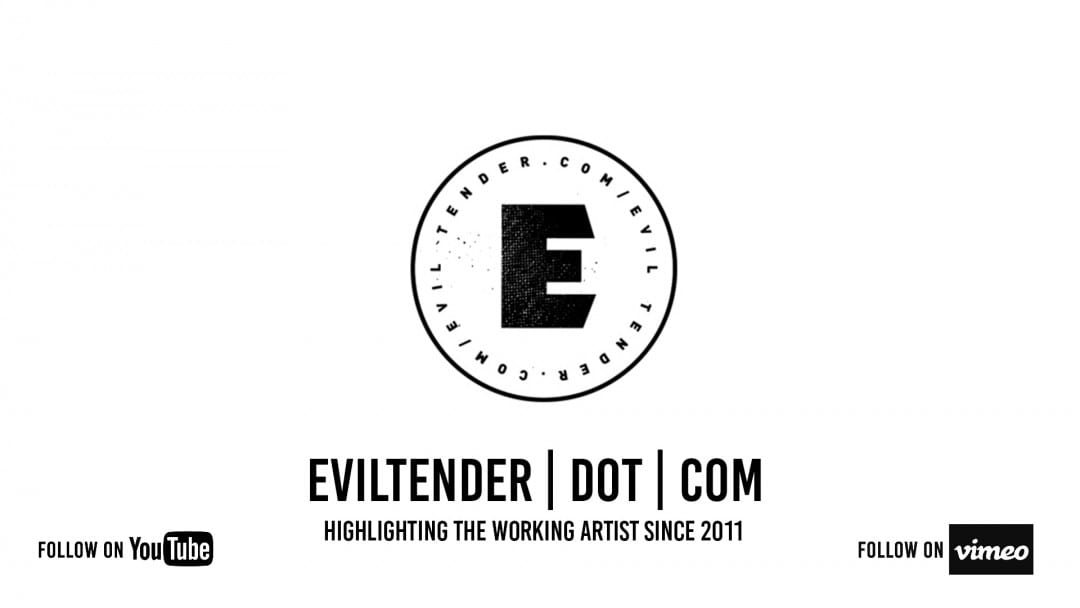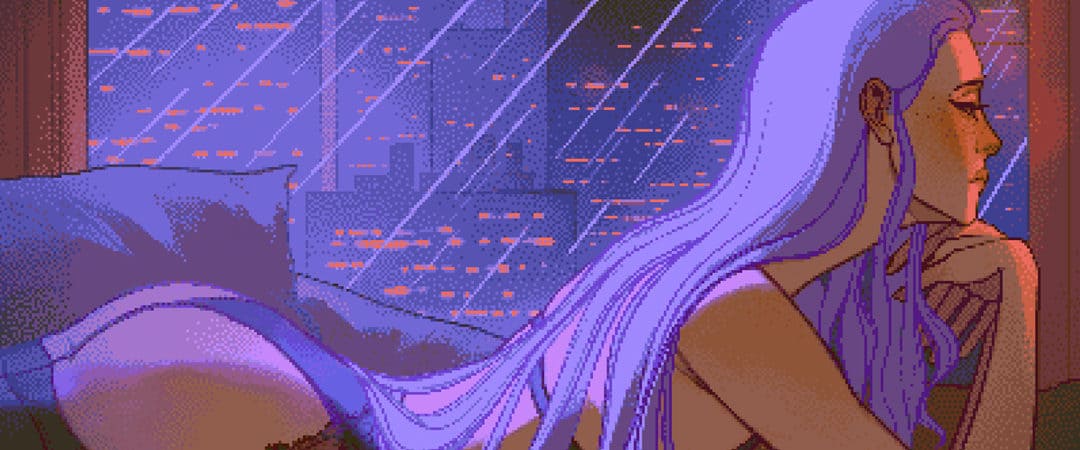
The world of science fiction focuses on the abstract future of things — cars, technology, cities. Androids and artificial intelligence will be there, but what is often neglected in these narratives is us. The we that will live within this cosmic future. In her statement about her piece Delete, digital artist Rylen states, “I wish my mind was a computer. Wish I could right click and save a perfect moment, then open it and relive whenever I wanted.” Rylen is not an artist in search of habitable planets or flying cars, but something more personal. Her science fiction is one focused on advancements in human relationships — the evolution of human emotion.
In Delete, Rylen shows us what her computer brain would look like: a PC desktop cluttered with music, art, tex files. All ready to save or to be deleted, absolute. Her work mimics the crisp edges and fantasy of ’90s 16-bit video games — a forever midnight in side-scrolling cities. She asks questions of life, herself, in the form of digital artifacts. If life is a video game then there must be answers, solutions of succinct purpose. There is no loneliness online — there is always someone facing the other side of the screen. Her work is from the computer and always connects back to its source. In each piece, the computer is there, holding her hand. Rylen treats the computer as confidant, an extension of her own being. In her pieces of isolation,
In Infinite Money, she answers that old question. A girl at a computer, drawing well into the evening. The style shifts to a painterly one. The palette remains the purpled haze of a glowing video game, but her attention to the reality; the softness of the shadowed pillow, the unhooked sandal under the desk — makes this private moment of an artist and her tablet as magical as it must feel to be her, in that moment. Carefree and involved, creating. The artist and her infinite money.

‘Delete’ by Rylen

‘Games’ by Rylen

‘Magic Pill’ by Rylen

‘Lost’ by Rylen

‘Things’ by Rylen
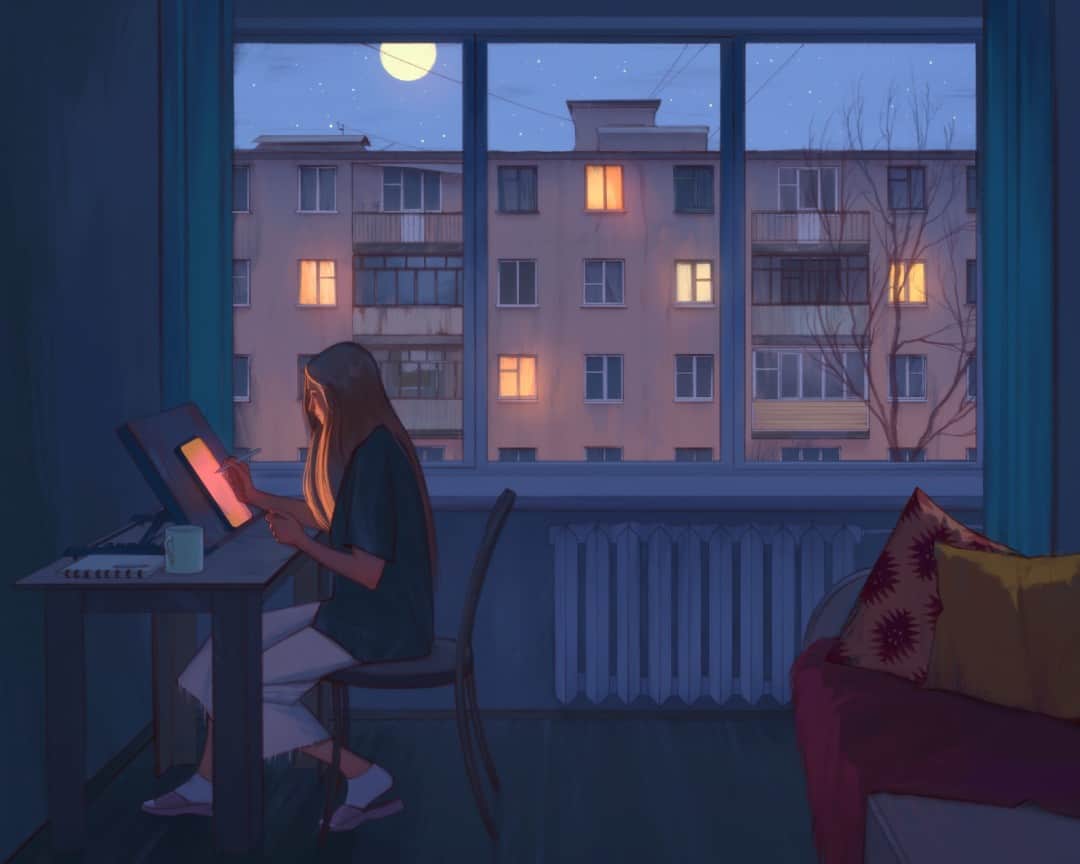
‘Infinite Money’ by Rylen
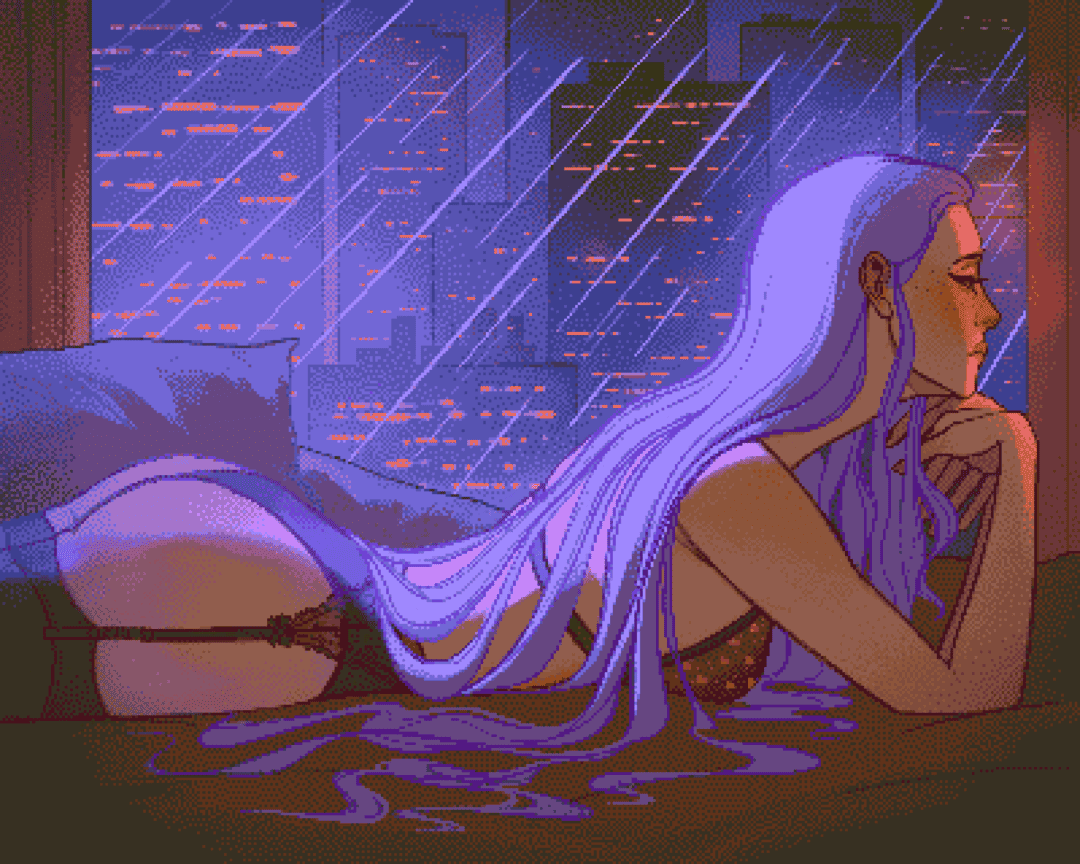
‘Maybe’ by Rylen
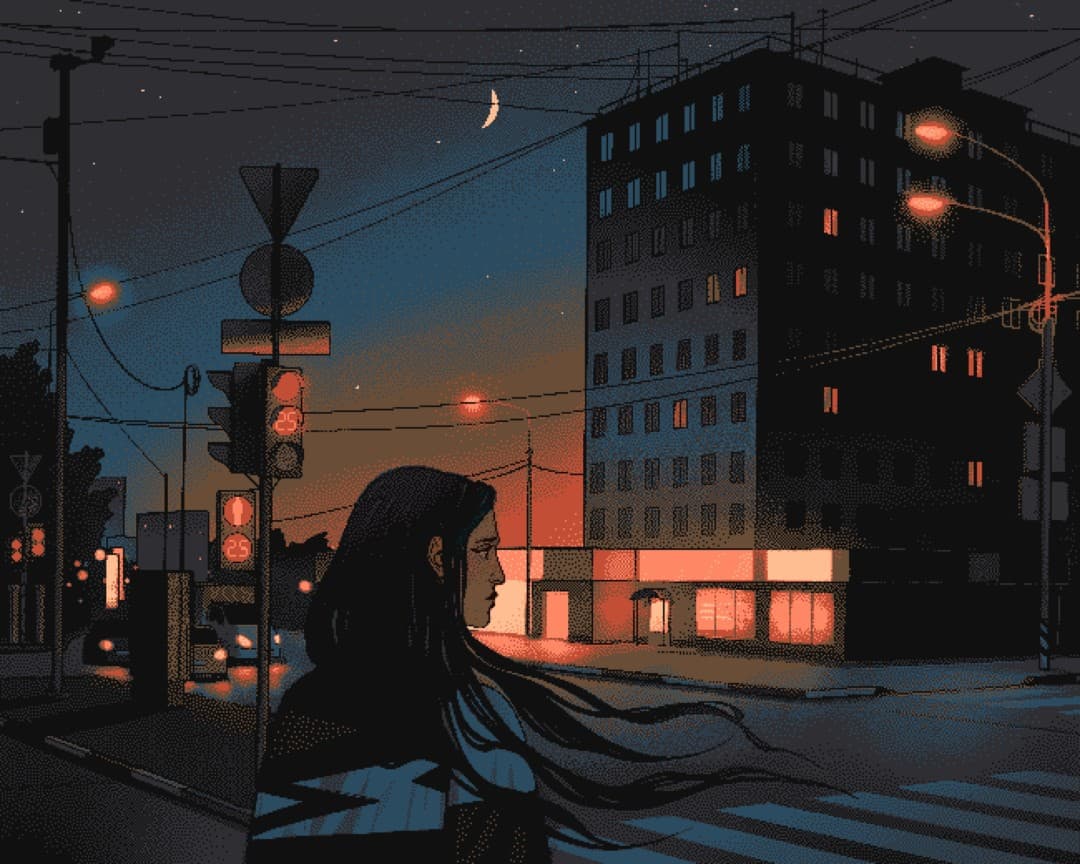
‘This is What it Feels Like to be Young’ by Rylen

‘Home Alone’ by Rylen
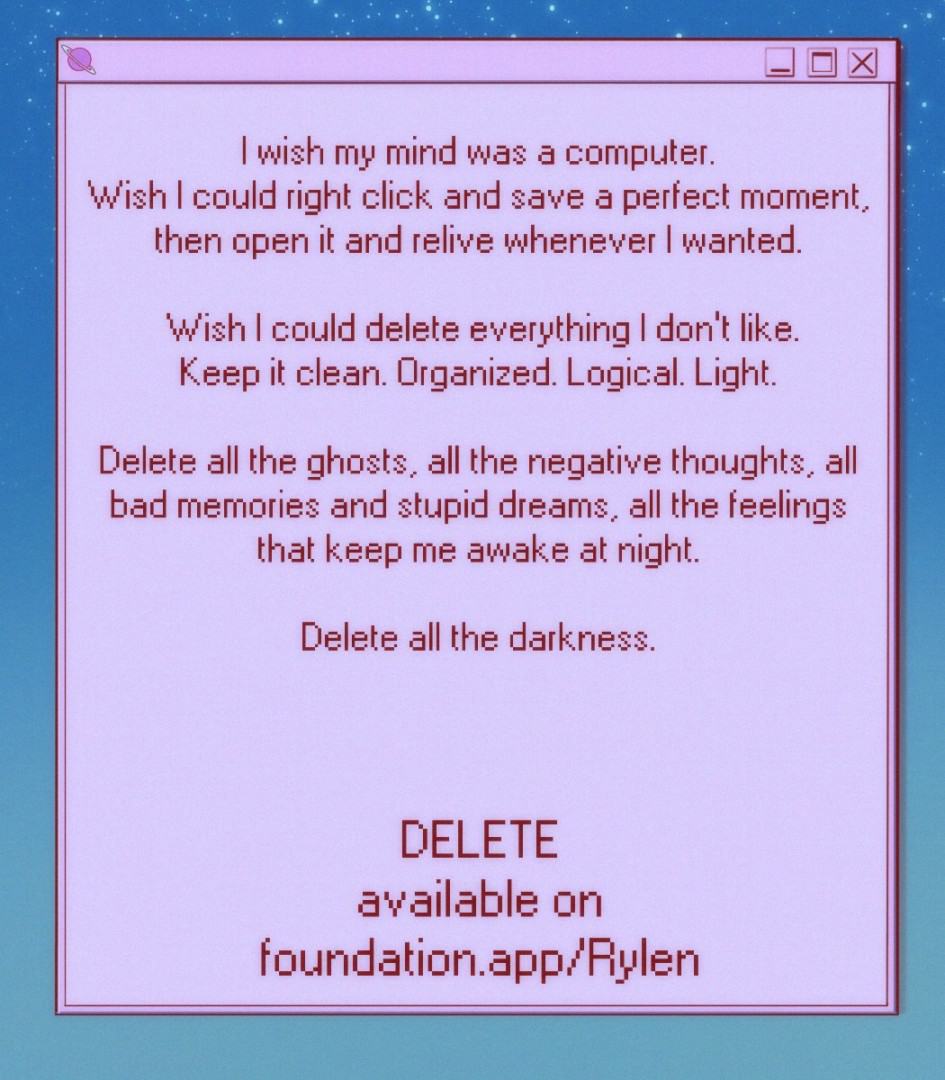
‘Delete’ (introduction) by Rylen’Delete’ by Rylen
